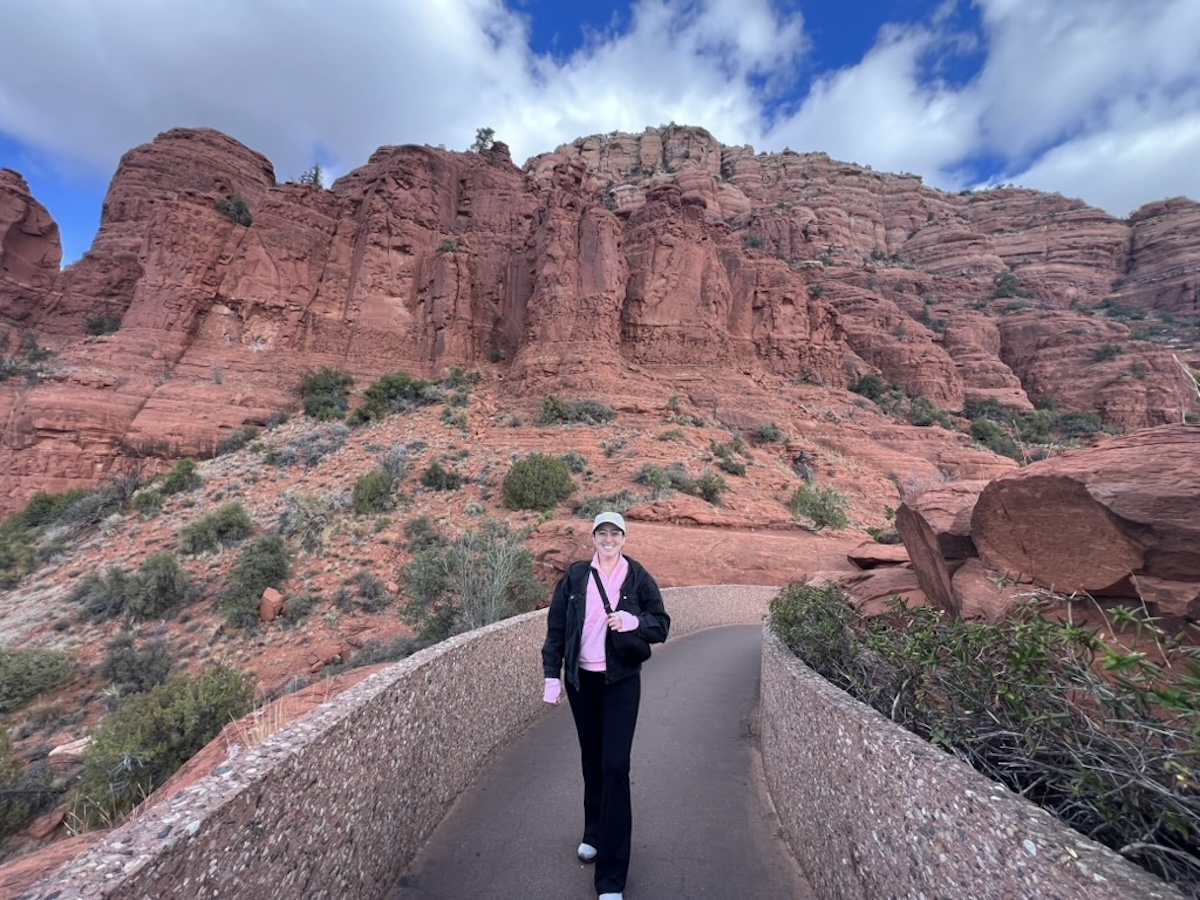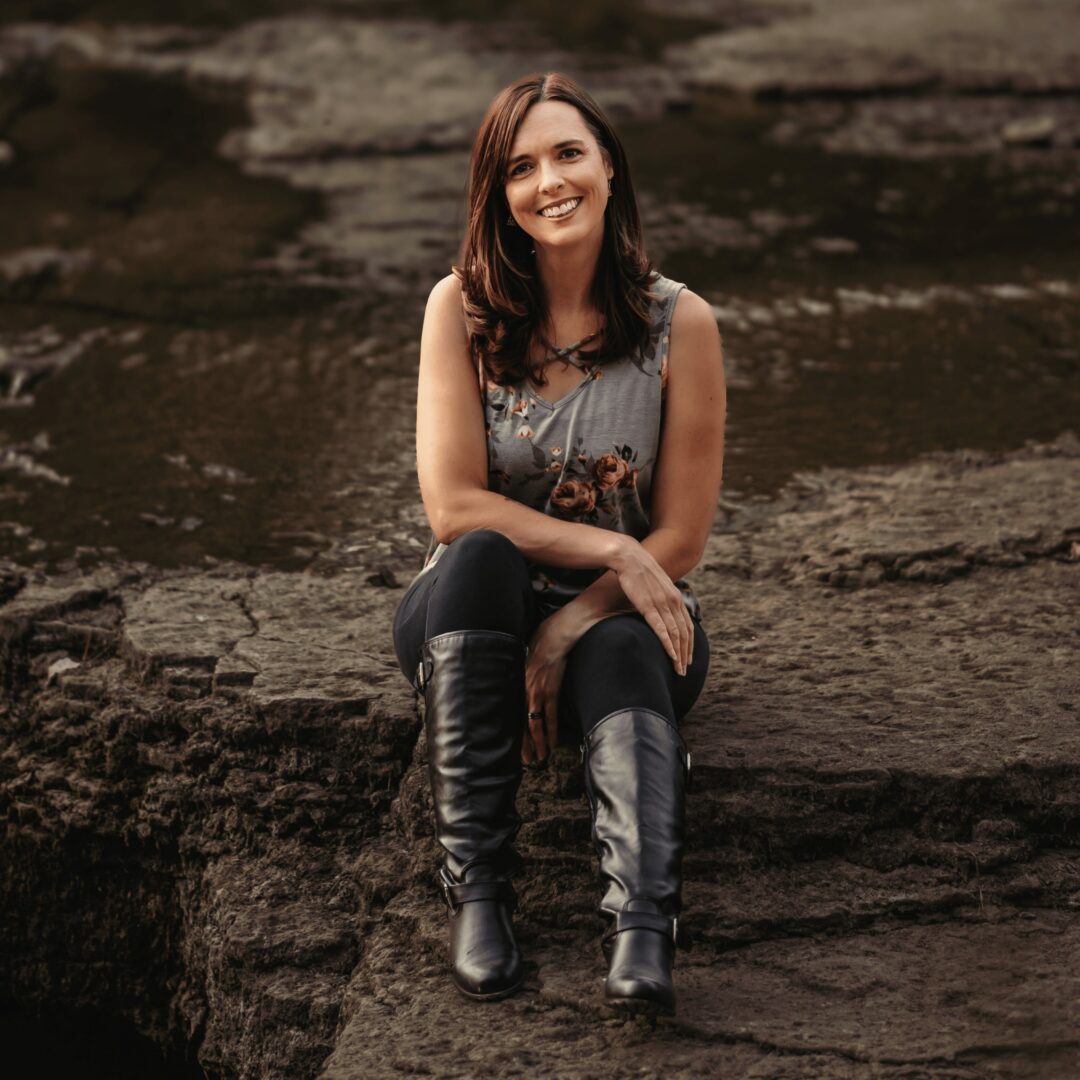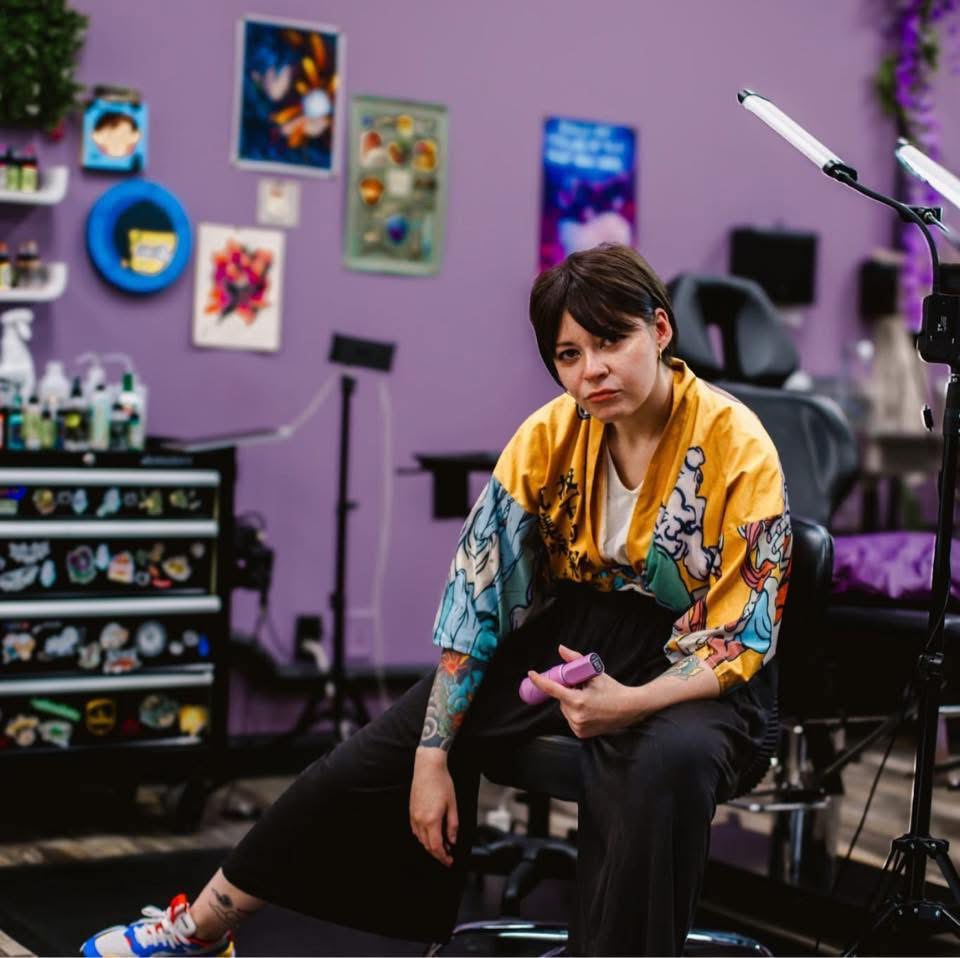We recently connected with Dr. Holly Wood and have shared our conversation below.
Hi Dr. Holly, appreciate you sitting with us today to share your wisdom with our readers. So, let’s start with resilience – where do you get your resilience from?
Resilience for me comes from the life I’ve lived—the challenges that shaped me and the lessons I’ve learned along the way. Growing up wasn’t easy. Our house was robbed multiple times, and each time, I remember feeling a little less safe in the world. It was like my sense of security kept being chipped away. But in a strange way, it also taught me how to hold onto what truly matters, because no one could take away our love or the strength we had as a family.
Losing my sister when I was just a baby and my brother when I was five left me with this heavy weight of survivor’s guilt. As the only child left, I struggled for years with survivor’s guilt, wondering, “Why me? Why am I still here?” I felt this deep pressure to make my life count—not just for me, but for them too. And certainly for my parents. They had been through enough already, so I didn’t want to do anything to cause them any more pain. It took a long time to make peace with that, but in some ways, their loss gave me purpose. I live every day knowing I carry their memory and their potential with me.
Later, when I was in college, my parents separated, and it felt like my foundation was crumbling all over again. I had to learn how to stand on my own and keep going even when things felt unstable. Around that same time, I started facing a different kind of challenge: failure. I was always really good at things like school and sports. So when I didn’t get into the colleges I dreamed of attending I was crushed.
Early in my career, I was passed over for jobs I wanted so badly, ones I thought were perfect for me. Each rejection stung and made me question if I was good enough. But every time I fell short, I learned something about myself. I learned how to take the lesson, grow, and keep moving forward. Failure, as hard as it is, taught me persistence and humility.
When I look at all these moments together—loss, rejection, fear—I realize they all played a role in building my resilience. I’ve learned to pivot when things don’t go as planned, to find strength in the midst of pain, and to trust that setbacks don’t define me. They’ve given me a sense of determination and the belief that I can handle whatever comes my way because, in so many ways, I already have.

Thanks for sharing that. So, before we get any further into our conversation, can you tell our readers a bit about yourself and what you’re working on?
Thank you for the opportunity to share more about myself and my work! I am a sex therapist, clinical sexologist, researcher, and educator, deeply passionate about promoting sexual health, well-being, and positive conversations around sexuality. With a PhD in Human Sexuality and certifications from AASECT and ABS, I’ve dedicated my career to fostering understanding, acceptance, and growth in this vital aspect of human life.
What makes my work exciting is its profound impact on individuals and relationships. Sexuality is a deeply personal yet universal experience, and being able to guide people through challenges, self-discovery, and empowerment is incredibly fulfilling. I focus on creating a safe, inclusive, and judgment-free space where people can explore topics they may not feel comfortable discussing elsewhere.
Through therapy, writing, and public speaking, I strive to break stigmas and provide evidence-based education that is approachable and engaging. My blog is a platform for tackling a wide range of topics—from sexual health and relationship dynamics to exploring intimacy and pleasure. I aim to make these discussions relatable and actionable, encouraging readers to embrace their unique journeys.
Excitingly, I’m currently expanding my reach by launching an online course series designed to empower individuals and couples with tools to enhance intimacy, communication, and understanding. Additionally, I’m collaborating with other professionals to host workshops and webinars that address the intersection of sexuality and mental health, inclusivity, and consent.
I also work on initiatives to amplify marginalized voices in discussions about sexuality, ensuring that everyone feels represented and heard. It’s about creating a ripple effect of positivity and growth, one conversation at a time.

If you had to pick three qualities that are most important to develop, which three would you say matter most?
Reflecting on my journey, there are three qualities or areas of knowledge that I believe were most impactful: empathy, commitment to continuous learning, and creating a safe and inclusive space. These have truly shaped how I connect with people and approach my work.
First, empathy has been fundamental. When you’re working in a field as personal and sensitive as sexuality, the ability to genuinely understand and validate someone’s experience is everything. It builds trust and creates a sense of safety for clients or audiences. For anyone starting out, I’d say: practice active listening. Really focus on being present in conversations and approach others with curiosity and kindness. You’ll learn so much just by listening without judgment.
Next, I’d highlight a commitment to continuous learning. Sexuality is such a dynamic field—it’s always evolving, whether that’s through new research, cultural shifts, or the inclusion of historically underrepresented perspectives. For me, staying informed has been crucial in remaining a credible and effective resource. My advice? Read widely, attend workshops, seek mentorship, and never stop being curious. The more you know, the better you can serve others.
Finally, creating a safe and inclusive space has been a cornerstone of my work. Whether it’s in therapy sessions, workshops, or online content, people need to feel seen, respected, and free to express themselves without fear of judgment. If you’re early in your journey, start by working on your communication skills. Learn to convey warmth and openness, and take time to educate yourself about different identities and experiences. Inclusivity isn’t just a mindset—it’s a practice you build over time.
For those just beginning their path, my biggest piece of advice is to stay patient and persistent. Developing these skills takes time and intention, but each step forward will make a difference. Lean on mentors and colleagues, embrace challenges as opportunities for growth, and most importantly, let your passion guide you.

Who is your ideal client or what sort of characteristics would make someone an ideal client for you?
My ideal client is someone who approaches their journey with curiosity and self-compassion. They don’t need to have everything figured out—in fact, many people come to me because they feel stuck or uncertain—but what makes the work truly impactful is a willingness to explore and reflect.
The key qualities I value in a client are openness, readiness, and a desire for self-acceptance. I love working with individuals or couples who are curious about themselves and want to better understand their sexuality, relationships, or intimate lives. They may not have all the answers, and that’s perfectly okay—what matters is their willingness to ask questions, try new perspectives, and engage with the process.
Another important characteristic is a sense of readiness. Therapy and self-discovery take time, and progress often comes in small, meaningful steps. An ideal client understands this and is committed to working through challenges, even when it feels vulnerable or uncomfortable. They’re ready to dive into the work, but also give themselves grace along the way.
Finally, I look for clients who are seeking self-acceptance. Whether they’re unpacking cultural stigmas, navigating changes in their bodies or relationships, or exploring their identities, that desire to embrace who they are—while still learning and growing—is incredibly powerful.
I also deeply value collaboration. I see therapy as a partnership, and my ideal client feels empowered to share their goals, thoughts, and feedback. They recognize that they’re the expert on their own lives, and my role is to guide and support them in achieving the growth and fulfillment they’re seeking.
Ultimately, you don’t have to have it all figured out to start. Whether you’re navigating specific challenges, exploring your identity, or simply looking for more satisfaction and joy in your intimate life, the first step is often the hardest but also the most important. Together, we’ll create a space that feels safe, supportive, and uniquely tailored to your needs.
Contact Info:
- Website: https://www.thehollywoodsexologist.com/
- Instagram: https://www.instagram.com/thehollywoodsexologist/
- Linkedin: https://www.linkedin.com/in/thehollywoodsexologist/

Image Credits
Devin Marie Sims
so if you or someone you know deserves recognition please let us know here.




